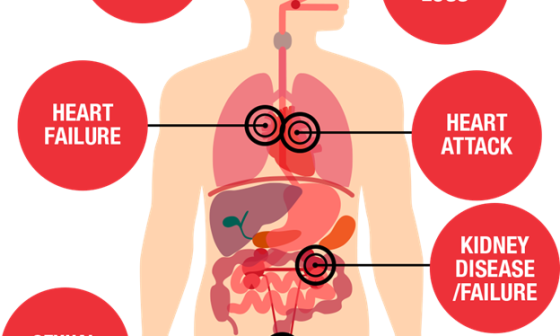Nearly 30 million women become pregnant every year in malaria-endemic parts of Africa. With Over 10,000 deaths tied back to malaria-induced anaemia in pregnant women across Africa, the effect of life-threatening impact one single infection can have on multitudes of life is enormous. A common question in our community is When should a pregnant woman treat malaria
So when should a pregnant woman treat malaria?
Immediately. The immune system of a woman is weakened as the body adjusts to accommodate the new life she is nurturing hence the need to ensure that malaria, like any other illness during this period, should be treated with the urgency it deserves.
No woman should have to die during childbirth, mostly in cases when it can be wholly prevented and avoided. This is why when it comes to malaria in pregnancy, there are a lot of questions to be answered: from what to eat, how to stay protected, what kind of drugs to use without side effects when to start medications, when should a woman treat malaria and so much more.
This article is going to answer a huge chunk of the above questions right away.
To begin, I would like to clarify that contrary to common beliefs. It is very safe to use treatments if you contract malaria during your pregnancy. What can become life-threatening is ignoring symptoms and not getting the appropriate treatment as you ought to.
Except in unique cases in which your doctor would inform you, many common anti-malaria and protozoan drugs can be used to treat both mother and the fetus/child unharmed. The accompanying results/ level of effectiveness may vary from pregnant woman to pregnant woman as body chemistry is different. However, it is always a better option than leaving the disease untreated.
Why is malaria in pregnancy so dangerous?
The simple answer to this would be because of the development of a new body organ — the placenta, which creates a unique place for malaria parasites to thrive.
Additionally, every pregnant woman undergoes immune changes that naturally reduce their immunity to malaria infection.
Malaria causing parasites
Two parasites responsible for malaria infection in humans are Plasmodium Vivax and Plasmodium Falciparum.
Plasmodium Vivax causes low birth rates and anaemia; however, it is less dangerous than Plasmodium Falciparum. This is because the Plasmodium Falciparum penetrates and attacks the placenta causing the greatest damage to both mother and child. The placenta lacks the immunity required to ward off the parasites, worsened because of the changes in body immunity pregnant women undergo during pregnancy.

Consequently, the placenta caves in response to the infiltration affecting the proper growth of the fetus and leading to maternal anaemia (lack of blood).
While malaria in pregnancy can be treated, the optimal performance of treatment methods employed is hugely dependent on what stage of the pregnancy and the timing of the placental infection. This is why malaria in the first trimester is even more dangerous. Here are some key facts by the WHO on Malaria
Pregnant women are three times more likely to develop the severe disease than non-pregnant women acquiring infections from the same area. Furthermore, because the malaria parasites sequester and replicate in the placenta, malaria infection during pregnancy can lead to miscarriage, premature delivery, low birth weight, congenital malaria infection, and perinatal death, amongst others.
Factors that predispose pregnant women to Malaria infections
Malaria in pregnancy is most common in first-time pregnancies, with the risk peaking between 13 to 16 weeks and declining afterwards. Women with second pregnancies are also at high risk.
- Age is another contributing factor, as more young adult pregnant women are at more risk of contracting the disease.
- Being HIV positive also increases susceptibility to contracting malaria infection during pregnancy.
- Areas with low transmission rates are also highly susceptible due to a lack of pre-existing immunity. This means that pregnant women living in areas where malaria infections are less common are more likely to be affected by the disease. Studying the risk rate of the locality you live in is advised.
The role of early diagnosis in malaria prevention
Malaria in pregnancy is associated with an increased risk for maternal and fetal complications. It can result in severe life-altering consequences, such as; maternal anaemia, cerebral malaria, pulmonary oedema, placental malaria, stillbirth, premature birth, intrauterine growth restriction, low birth weight (LBW) and death.
Since the symptoms of malaria in pregnancy vary according to the severity of malaria transmission and levels of immunity acquired by individuals, early diagnosis is one way to reduce the risk of advanced infection rate levels. This is another reason antenatal care and visits are non-negotiable and highly important for every pregnant woman.
When should malaria in pregnancy be treated?
The first trimester of every pregnancy is often very sensitive, and it’s generally advised to avoid drugs as not all anti-malarial medicines are safe for pregnant women during this stage. Women infected with malaria parasites in mid-pregnancy are also particularly vulnerable as this period corresponds to the time of maximum fetal growth.
So when and how is malaria in pregnancy treated?
Effective case management of malaria involves early diagnosis and prompt treatment of acute cases using effective anti-malaria drugs.
Currently, the World Health Organization (WHO) recommends administering two or more doses of a safe, effective anti-malarial after the end of the first trimester for all pregnant women. This treatment method is known as the IPTp.
IPTP (Intermittent Preventive Treatment in Pregnancy )
Intermittent preventive treatment in pregnancy (IPTp) involves using a single dose of an anti-malarial drug known as sulfadoxine-pyrimethamine (SP) to treat women during pregnancy. The drug is given to pregnant women without testing whether or not they are infected with the malaria parasite. This strategy is employed to help reduce and prevent negative malaria-related maternal and fetal outcomes.
The IPTp-SP is implemented in pregnant women starting as fast as possible in the second trimester, as the timing of IPTp administration is critical. The anti-malarial drug SP sulfadoxine-pyrimethamine is also administered at monthly intervals up to the delivery time. The IPTp-SP treatment method is complemented with folic acid dose reduction as it counteracts the effect of sulfadoxine-pyrimethamine and iron to prevent maternal anaemia.
Accessing quality healthcare during pregnancy is important, and malaria can be recurring. You can access quality healthcare by signing up on any of our health plans here
This plans will help you better manage malaria and ensure you do not spend extra when you need tests and treatment for malaria.
Is there a Malaria treatment method for Pregnant Women that works for all trimesters
Quinine is an anti-malarial drug and, so far, is the safest. It is less effective in contrast to other malaria drugs. Still, it is better tolerated and can be used in all trimesters, meaning pregnant women in Nigeria can take quinine in their first, second and third trimesters without fear of adverse side effects.
Chloroquine injections or tablets are also safe for pregnant women in all trimesters. However, the use of Chloroquine for the treatment of malaria has been banned due to recurring drug resistance.
See also: Dispelling Common Breast Cancer Awareness Myths
Treatment for second and third trimesters
The second and third trimesters of pregnancy are defining moments in the growth of the fetus. At this stage, Artemisinin-based combination therapy (ACT) can be used as an anti-malarial for acute cases in the second and third trimesters.
Additional notes on Malaria and Pregnancy
Some studies find that contracting malaria in the first trimester increases the risk of miscarriage by 60%. Recurrent malaria in the first trimester, which can result from ineffective or incomplete treatment, increases the risk of miscarriage more than three-fold. The risk of miscarriage following treatment with artemisinins was not higher and possibly lower than after treatment of malaria with quinine.
When should a pregnant woman treat malaria is a common theme at antenatal clinics, we believe this article answered your question.
Finally, for a better pregnancy experience, it is advised to visit the antenatal clinic regularly and sleep under treated mosquito nets. Still, frequently communicate with your doctors to help curb the risk of leaving a malaria infection unnoticed and untreated.







Topic is well discussed.